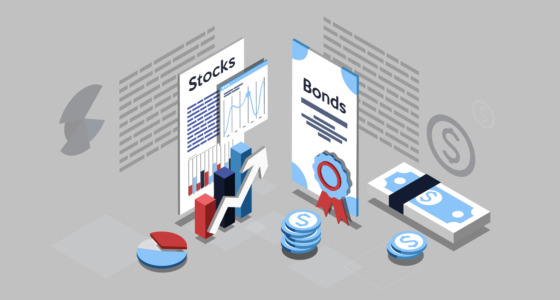

The supply chain is a crucial part of a company and one of the defining factors of its success. Hence, the a need for supply chain management. For a business to thrive, the supply process must be done correctly, from purchasing raw materials to production, packaging, and distribution.
What is Supply Chain Management?
Supply Chain Management (SCM) involves managing and controlling goods and services from supply to production until they reach the final consumer.
It covers managing goods and services across the different manufacturing processes, including the supply of raw materials, transportation of goods, and storage in warehouses. Supply chain management aims to ensure products are delivered to consumers timely and efficiently.
The Key Objectives of Supply Chain Management
1. Improving Efficiency
One of the most essential objectives of supply chain management is enhancing efficiency. Efficiency in the supply chain will reduce waste in terms of raw materials, labor, finance, time, etc. The incorporation of green supply chain management (GSCM) also helps to improve efficiency by preventing waste.
SCM’s objective also entails ensuring efficiency in the different supply chains, including the manufacturers, inventory, and transport service. The efficient use of time and resources will contribute significantly to the supply chain. Hence, it is a crucial objective of SCM.
2. Minimizing Costs
Another objective of supply chain management is to minimize operational costs. Through proper management of the supply chain, a company can significantly lower the cost of purchasing raw materials and equipment, cost of production, transportation, and supply.
For example, purchasing raw materials from a local supplier who doesn’t compromise quality helps the company save costs instead of buying from a further away supplier.
3. Ensuring Product Quality
While cost reduction is crucial, product quality must be guaranteed. Thus, supply chain management aims to ensure that products are of the best quality for consumption. Quality products are essential for customer satisfaction, so they cannot be compromised.
The role of SCM for quality management includes creating a standard for supply, manufacturing, and packaging and ensuring they meet the standard required for product quality. It also involves adhering to safety regulations and ethics guiding the industry.
4. Increasing Flexibility
Flexibility and adaptability are vital to surviving the current business environment. A company must adapt to changes, like government policies, customer demands, technological advancement, and economic instability. Hence, an objective of supply chain management is to assist the business to adapt to changes in the supply chain and minimize the impact of such changes.
A flexible supply chain can take advantage of positive changes to improve supply and sales while reducing the impact caused by adverse changes. This can be done by establishing flexible operating standards and planning for contingencies.
5. Optimising Transportation, Logistics, and Distribution
Supply won’t be complete until the distribution stage, so managing and optimizing transportation, logistics, and distribution is vital. Supply chain management involves shipping, transporting, and storing raw materials and finished products.
SCM ensures that transportation and logistics activities from start to finish are optimized to reduce cost, minimize waste, and manage time. They provide timely transportation and delivery of goods for customer satisfaction.
6. Enhancing Customer Satisfaction
Customer satisfaction is one of the production goals, making it an objective of supply chain management. SCM directly influences client satisfaction through production, pricing, and delivery.
Managing the different stages of supply helps to produce results that meet customer expectations after distribution. Hence increasing demand and profit. SCM provides ways to minimize errors and provide outstanding services and quality products to meet customers’ needs.
7. Maintaining Better Coordination
Supply chain management aims to improve coordination in the supply chain by creating an effective channel for suppliers and customers to communicate with the company.
SCM also works towards maintaining organization among employees in the supply unit. Managers can communicate with supervisors and staff for effective operation. The orderly organization of operations will ensure efficiency and productivity.
Main Functions of Supply Chain Management
Some of the main functions of supply chain management are:
- Purchasing
One function of supply chain management is purchasing. Raw materials are required to produce goods and services in the production process. It is, therefore, essential to get the resources on time for production.
Purchasing involves acquiring raw materials, goods, equipment, and services needed to produce and deliver finished products to customers. It includes selecting reliable suppliers, negotiating with suppliers and service providers, and managing supplier relationships.
- Logistics
This function of supply chain management involves managing the flow of commercial activities, including all aspects of planning, production, transportation, warehousing, etc. It is necessary to control the flow of these activities to ensure that products can reach consumers quickly and at an affordable rate.
- Resource Management
Resource management involves the management of the resources required to sustain the supply chain, including the workforce and facilities. The production process consumes raw materials.
SCM manages resources to ensure that resources are appropriately allocated to the right field for better productivity. Hence, resources can be efficiently used in the production process to enhance production.
- Planning
Planning is an essential part of everything, including the supply chain. Planning and forecasting are necessary before purchasing materials. This is because demand will determine the amount of raw materials to buy and how many units of products to produce.
Organizations must plan and know the estimated products to produce according to the demands to avoid having too many or too few in hand, which can lead to a loss of revenue.
- Information Workflow
Communication is what keeps the various functions of supply chain management working. Therefore, information distribution is a primary function of management flow. Poor information workflow could tear apart the entire supply chain. Effective communication can also prevent many problems in the supply chain.

Supply Chain Management Job Opportunities and Career Path
As a broad field, supply chain management requires different skill sets in sales, inventory, logistics, and inventory. Hence, many career opportunities are available under SCM, from entry-level to executive positions.
From supply to distribution, career opportunities exist for people seeking a job in this field. Below is a list of some of the career paths in supply chain management.
7 Career Opportunities in Supply Chain Management
1. Supply Chain Manager
The supply chain manager is a professional who oversees every stage and department in the supply chain and all related activities. The supply chain manager supervises employees, analyzes supply chain data and performance, and manages inventories. Basically, they are top executives in charge of every other manager in the supply chain management unit.
2. Logistics Manager
Logistics managers are supply chain experts who plan and manage all logistics-related activities. They oversee the purchasing, shipping, transportation, distribution, storage, and delivery of materials and products. They also supervise and train logistic staff and manage the entire logistic processes from start to finish.
3. Purchasing Manager / Supply Manager
The purchasing manager, also known as a supply manager, oversees the purchasing team in a company. They are responsible for managing the company’s relationship with the suppliers and purchasing supplies and raw materials. They also maintain the purchase record, negotiate with suppliers, develop valuable strategies, and evaluate price trends.
4. Materials Manager
The materials manager’s primary role is to oversee the procurement, storage, and distribution of materials and products pending customer demand. A materials manager is also responsible for maintaining goods inventory, scheduling deliveries and shipping, minimizing waste, and overseeing product storage.
5. Distribution Manager
Distribution managers manage distribution. They decide when to distribute products, where to send them, and in what quantity. In short, they are in charge of customer orders.
They use software to forecast demand, balance the company’s production for optimal production, and design effective strategies. Distribution managers understand the dynamics in the market and can take advantage of opportunities to reduce costs.
6. Transportation Director
Transportation directors are professionals in SCM who oversee all transportation-related activities in the supply chain, including moving materials and shipping. They also monitor staff, transport safety, and transportation costs and manage transportation providers. Transportation directors also develop strategies to optimize the transportation network and minimize expenses.
7. Operations Manager
An operations manager managed different aspects of the supply chain. They are in charge of hiring and training staff members, reviewing existing policies, and providing guidelines for team members to improve efficiency. They are also responsible for assisting in budget planning, optimizing resource management, and minimizing waste.
How to Get a Job in Supply Chain Management
If you desire to get a supply chain management job, here are some steps to take:
1. Get an Education
Getting an education is necessary to get a job in supply chain management, as most roles require at least a bachelor’s degree. But, generally, the level of education needed will depend on the career you intend to choose. The higher the role, the higher the requirement.
2. Get Certified
Obtaining an additional certification in your aspiring field in supply chain management can be very helpful. You can take a course or get certified by the International Supply Chain Education Alliance (ISCEA), a leading provider of education in supply chain management.
3. Build Your Skills
Learn valuable skills that will be useful in your role and those that will help you advance in the field. Practical skills for supply chain management include information technology, communication skills, supply chain management, and skills that will help you succeed in your specific area.
Learn more about your field and find out the skills that you need. Such skills include information technology (IT) skills, planning and organization skills, communication, time management, and adaptability. However, some skills are peculiar to the field you intend to function in.
4. Work Your Way Up
You may already be in the supply chain industry and want to go higher. To do so, you must work up to your desired career path. You may need to gain new skills to do so. So, keeping an open mind to learning and mentoring from those above you is crucial.
FAQ: Your Questions About Supply Chain Management Answered
1. What is Supply Chain Management?
Supply chain management controls all processes involved in production, from the supply of raw materials to the delivery of products to the final consumers. Supply chain management works toward minimizing waste, providing exceptional customer services, and reducing costs.
2. What are the Components of Supply Chain Management?
There are five components of supply chain management. They include planning, sourcing, producing, delivering, and returning. SCM plans and controls resources, sources and manages suppliers, coordinates production processes, organizes delivery and logistics, and manages product refunds.
3. Why is Supply Chain Management Important?
Supply chain management is vital in any company because it helps minimize waste, reduce costs, ensure product quality, and assure customer satisfaction. The whole supply chain management process helps to reduce the risk of product recalls, poor demand, and resource waste.
4. What are the Benefits of Choosing a career path in Supply Chain Management?
Choosing a career path in supply chain management offers the following benefits:
- Competitive salaries: Supply chain management jobs offer handsome salaries, bonuses, and incentives.
- Various job opportunities: There are many jobs that the supply chain industry offers.
- Transferable skills: Individuals can learn skills in other fields outside the supply chain management industry.
5. What are the Common Career Paths in Supply Chain Management?
There are many career opportunities in supply chain management. But the most common career paths are supply chain manager, logistics manager, logistics analyst, purchasing manager, and production manager.












